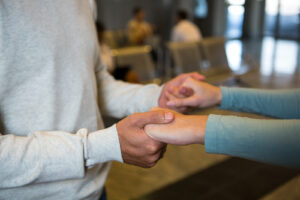It is with a great deal of hesitancy that I even broach this topic. We all know the admonition about ‘pride goeth before a fall’. And this is accurate but…. I also think the word’s gotten a bad rap.
While we avoid saying the word, we substitute in order to express our feelings – we say we are pleased rather than saying we are proud, even when it comes to the accomplishments of others. (We certainly don’t want to induce pride in the hearts and minds of others.!) But ‘pleased’ can be such a wimpy word – it really never expresses depth of feeling.
I’m not going to recite all the definitions and examples about the bad effects of pride. We all know them extremely well, they are legend. And they are true – remember, they are true. However, is there a ‘case’ for pride? Is pride ever positive? Is it possible to have pride but not have pride have you?
My parents were really quite wise in how they raised us, their children. They always demonstrated their pride in us when we accomplished something. And in that process allowed us to feel – no, not superior – that we had succeeded. I think, consciously or not, they modeled a positive way to express pride. Pride does not have to be a stumbling stone.
I’d like to present the case for pride.
Your Honor, ladies and gentlemen of the jury: this is the sentencing phase of the trial against pride. You’ve found him guilty and now must decide his fate. Up to this point the case against pride was open and shut – we did not present a case because it is more than obvious the destruction pride can cause. But…. is there any case for pride? I think there is.






